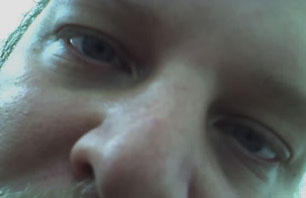 According to this New York Times article, "only 17% of the nation's physicians are using computerized patient records." Obama's economic stimulus package includes $19 billion to "accelerate the use of computerized medical records in doctors' offices."
According to this New York Times article, "only 17% of the nation's physicians are using computerized patient records." Obama's economic stimulus package includes $19 billion to "accelerate the use of computerized medical records in doctors' offices."In other words, it would be reasonable to expect my company's income, client list, and work load to increase substantially in the next 5 years.
Some of that work may go to India or The Philippines, but currently there is a shortage of qualified transcriptionists to meet current demand in those countries... and they are handling only 10% of the current electronic medical record market. That's 10% of the 17%, or 1¾% of the total potetential (but very likely) electronic medical record market. The future electronic medical record market will require literally 50 times the number of qualified transcriptionists as India and The Philippines have already provided... are currently straining to provide... and unless there are half a million otherwise-unemployed people floating around India and The Philippines with college-level english skills, Americans are likely to be filling those new positions.
It may not be as lucrative as it once was (though that might change as demand for qualified candidates skyrockets), but medical transcription might be a safe bet for the near-and-mid term after all... and my company is really the industry leader in the very technology that this $19 billion is going to be spent on.
(If you're interested in becoming a medical transcriptionist, I recommend you go to MT Daily. You can also look at the ROS School, the correspondence course I used 7 years ago. It cost (then) about $2,000 and took about 4 months to complete, with guaranteed job placement upon finishing.)
UPDATE:
Just a thought too: England, Canada, Australia, as well as all of the non-English speaking first world countries on the planet will be making this switch as well... even if it is without government funding. It certainly seems to be a "nowhere but up" industry at this point in time. (Knock on wood.)


4 comments:
Just one teeny problem here Jil. Voice transcription/recognition.
Not at all: First of all, all medical transcription — whether completed with Speech Recognition or not — needs to be proofread by somebody qualified to know whether a drug dosage is 15 mg or 50 mg, or whether a doctor is saying "avulsion" or "evulsion", or "perineal" or "peroneal", or "Klonpin" or "clonidine", et cetera, et cetera. HIPA regulations require this and are never going to change. Nobody will ever trust a computer to have 100% understanding of what a human is saying when even human's cannot achieve 100% understanding of what a human is saying... especially when lives are at stake by mis-dosing or mis-labeling in somebody's medical record.
Granted, it takes a lower level of skill to read a computer's "best guess" and make corrections than it does to listen to it yourself and create the record from scratch, but not nearly as lower a level of skill as you might think. I'm actually taking a break from proofing speech recognition to write this comment, and I can assure you that it takes somebody with medical transcription training to ensure that these medical records are error-free.
Hope you are correct Jil but my experience of work in the engineering field over a 50 year period has thrown up an awful lot of technology induced changes to my daily work experiences. The way that I work now(as you would understand) was unimaginable just 25 years or even in some cases 10 years ago.
Good luck, I enjoy the blog very much.
I don't disagree with that assertion about the changes technology brings. Comparing the job of medical transcription today to what it was just 15 years ago shows huge changes.
However, think of it this way: Imagine that you have a bad cough and you go in to get a chest x-ray. You stand in front of a machine which takes your chest x-ray, examines it, and spits out either "you have lung cancer" or "no problem at all." No human ever gets to see the x-ray or confirm what the machine decided.
Would you be comfortable with that? Can you imagine any doctor that would be comfortable with that? It's the same situation with medical records: There are just as many details, and just as many opportunities for grave mistakes to be made as the x-ray situation I described above. No machine will ever be trusted to replace the judgement and experience of a human trained to figure and deduce and decide.
Post a Comment